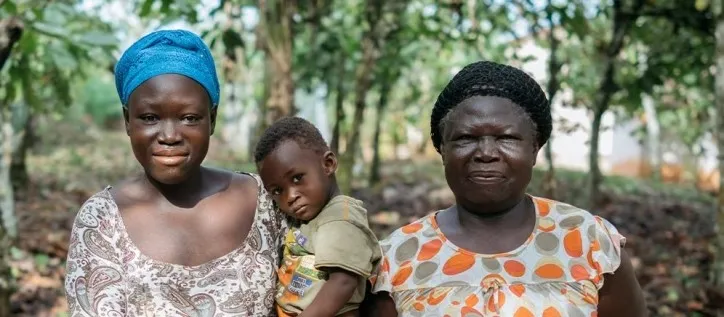Like many other great 19th-century chocolate families (Rowntree, Cadbury, et al.), The Hershey Company has a reputation for its philanthropic endeavours, including supporting local communities in Pennsylvania with housing and education facilities.
In the 21st century, many cocoa and chocolate companies have invested heavily in their cocoa supply chains, under increasing pressure from governments and consumers to eradicate child labour and deforestation and provide a living wage for farmers.
Hershey has recently announced a significant investment in a wide-scale educational infrastructure in West Africa, where much of the world’s cocoa is grown, to support children without sufficient access to quality education.
In a statement, Tim McCoy, Hershey director of Cocoa Partnerships, said, “Our hope is that having greater school access can help set generations of children on a path to fulfilling and productive lives.”
The company said it engages with leading children’s rights experts to enhance its work in the region and apply what it has learned from years of investing in cocoa-farming communities to achieve a more significant impact.
There are an estimated 800,000 cocoa farmers in Cote d’Ivoire, most of whom own small farms of 1 to 3 hectares and earn an annual income of 2,000 US Dollars. UNICEF estimates that some 60% of farmers in Cote d'Ivoire live on an income below 737 FCFA per person per day—equivalent to 1.5 US Dollars. Ten years ago, an estimated 1.4 million children (5-17 years old) were working in Côte d’Ivoire, of which 49 % were in agriculture. Children who work in cocoa production are often deprived of adequate schooling. Further, due to carrying heavy loads of cocoa from the farms to the assembly points, they are exposed to different types of risks and hazards, including exposure to pesticides, insect and snake bites, machete wounds, fatigue, and back problems.
McCoy said Hershey is partnering with the Child Learning and Education Facility (CLEF). This public-private coalition improves access to quality education for children in cocoa-producing areas of Cote d’Ivoire.
“In CLEF, we are partnering with the Jacobs Foundation, the Government of Cote d’Ivoire Ministry of Education and Literacy, and 14 other chocolate producers and cocoa suppliers to build 2,500 new classrooms, train teachers, establish remedial education programmes and improve literacy and numeracy for 5 million primary school children,” he said.
Last year, Hershey signed an agreement with Cote d’Ivoire’s National Oversight Committee for Actions to Fight Child Labour, Trafficking and Exploitation (CNS) and the International Cocoa Initiative (ICI) to fund construction of 12 primary schools (72 classrooms) in cocoa-producing communities that currently lack school infrastructure.
“In 2023, we built three new schools in Cote d’Ivoire, and nine more will be completed by the end of 2025.”
McCoy told CocoaRadar it is a multi-million dollar initiative with investments by industry, the Jacobs Foundation, the Cote d'Ivoire government and other donors.
In addition to CLEF, The Hershey Company launched its own primary school construction project in April 2023, in partnership with ICI and the National Child Labor Oversight Committee in Cote d'Ivoire. Hershey is the primary donor for the project, which is on track to build at least 12 primary schools in the country by the end of 2025.
It is well-known that many rural cocoa-growing communities in West Africa lack the financial resources to develop a school system that can serve all the children in the area. As a result, families force children to work on the farms instead of attending school.
Factors like distance between households and challenges in recruiting and housing teachers often need more educational infrastructure.
Hershey claimed that the new public primary school in Ozékro, a cocoa-growing community in western Cote d’Ivoire, already allows families to benefit from the project. In a community of fewer than 1,000 people, nearly 200 households have been impacted by having a new school within traveling distance, removing a barrier to education for many.
“Our efforts are aimed toward helping children receive a quality education to achieve their full potential and that high-quality school infrastructure is key to creating a safe and protective environment where children can learn. Research also shows that communities with better access to education have fewer children working to support their families’ farms, a key issue in many cocoa-growing regions.”
Aligned with the objectives of Cote d'Ivoire's National Strategy for Sustainable Cocoa and Hershey's Income Accelerator programme, these investments also extend to projects such as the construction of canteens, upgraded water wells, and latrines.
“Central to any education system are devoted teachers, so we’re working with our partners to train educators and, where appropriate, build teacher lodgings. We’re providing school supplies in line with the government’s national child labor action plans, and helping children obtain birth certificates necessary to enroll in school,” McCoy said.

